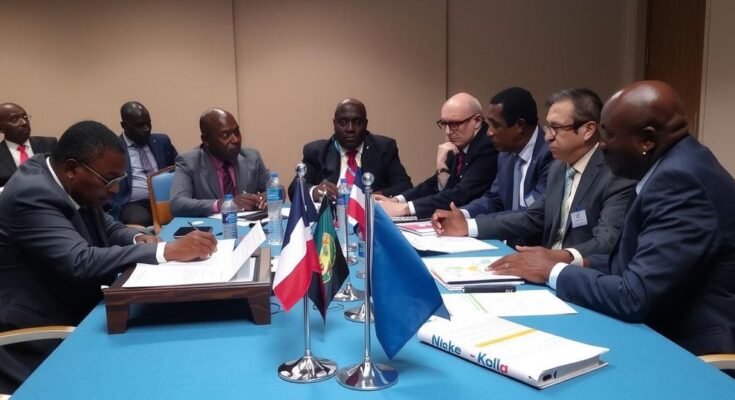The UN Commission on Human Rights in South Sudan visits Kenya for five days to discuss human rights issues and accountability in South Sudan. Led by Yasmin Sooka and Barney Afako, the delegation meets various stakeholders to emphasize regional support and promote justice and transitional measures essential for lasting peace.
A delegation from the UN Commission on Human Rights in South Sudan has embarked on a five-day mission to Kenya to engage various stakeholders with the objective of enhancing human rights and establishing accountability for human rights violations in South Sudan. Led by Chair Yasmin Sooka and Commissioner Barney Afako, the delegation plans to meet with senior officials from the Kenyan government, representatives from international organizations, and civil society entities.
The discussions will focus on emphasizing the significance of upholding human rights, averting further deterioration of the situation in South Sudan, and strengthening the role of justice and accountability in the peace process. The Commission intends to highlight the critical support required from regional partners, particularly Kenya, as a guarantor of the peace and transition process.
Moreover, they aim to advocate for robust support for South Sudan’s initiatives to establish a credible and independent judicial system, aligning with recommendations from the Judicial Review Commission. This initiative includes creating effective and impartial institutions capable of maintaining the rule of law and human rights throughout the nation. The Commission will also engage stakeholders in the resumed mediation dialogue in Nairobi, known as the Tumaini Initiative, which involves the South Sudan government and hold-out groups from the Revitalized Agreement for Resolution of Conflict in South Sudan (R-ARCSS) of 2018.
The Commission encourages all parties in the Tumaini Initiative to integrate transitional justice measures into the ongoing discussions, thereby ensuring accountability, truth-telling, and providing redress for victims, which are fundamental for achieving lasting peace in South Sudan. The Commission on Human Rights in South Sudan, established in March 2016 and renewed annually, operates independently as part of the UN Human Rights Council. Its responsibilities include investigating human rights conditions in South Sudan and making recommendations to prevent further deterioration, while also clarifying responsibilities related to violations of national or international law.
The UN Commission on Human Rights in South Sudan was established to address the ongoing human rights violations in the country since the outbreak of conflict in 2013. The Commission serves as an independent body committed to investigating human rights abuses, supporting the establishment of accountability mechanisms, and promoting the rule of law. In this context, regional cooperation, especially from neighboring countries like Kenya, is seen as pivotal in the peace and transition process for South Sudan, which has suffered from prolonged instability and violence.
In conclusion, the visit of the UN Commission on Human Rights in South Sudan to Kenya underscores the critical need for collaborative efforts to address human rights violations and ensure accountability in South Sudan. Through engagements with government officials, international organizations, and civil society groups, the Commission seeks to reinforce the importance of justice, transitional measures, and regional support in the ongoing peace process, thereby contributing to the establishment of a sustainable judicial framework in South Sudan.
Original Source: www.radiotamazuj.org




